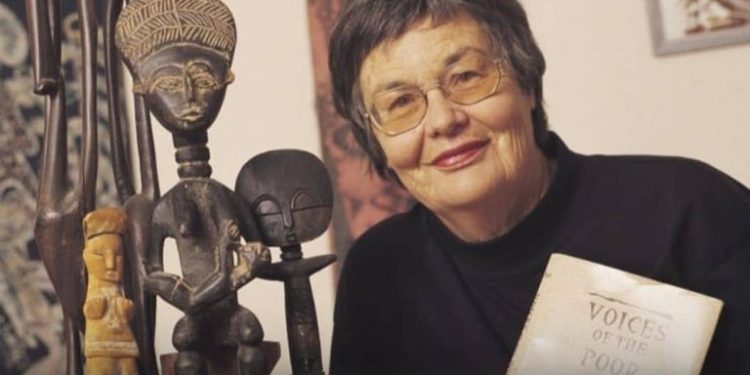Most African historical narratives once centred almost exclusively on large, centralised kingdoms and empires.
Small, non-centralised societies like the Igbo were often neglected or misunderstood, until one historian changed the landscape.
That historian is Professor Elizabeth Mary Allo Isichei, whose book A History of the Igbo People offered one of the first comprehensive scholarly treatments of Igbo history, from 800 A.D. to the post-colonial era.
Diaspora Digital Media (DDM) gathered that Isichei’s work not only challenged the colonial historical framework but also revolutionised the way Nigerian and African history is written, from the inside out.
Born in Tauranga, New Zealand, on March 22, 1939, Elizabeth was a brilliant student from the start.
She topped New Zealand’s national entrance exams in 1955.
By 1960, she had earned a BA from the University of Canterbury, and in 1961, she graduated with First Class Honours in History from Victoria University of Wellington.
But her story took a transformative turn in 1964, when she married Dr. Uche Peter Isichei, a Nigerian chemical pathologist from Asaba, Delta State.
The marriage, which lasted 59 years until Dr. Isichei’s death in 2023, brought Elizabeth into the heart of Igbo society.
There, she raised five children while immersing herself in the culture, language, and oral traditions of the people.
By the 1970s, she was living in Nigeria, balancing motherhood with her career as a historian.
In 1973, she published The Ibo People and the Europeans, laying the groundwork for her magnum opus.
In 1976, she released A History of the Igbo People, a ground-breaking text that shifted historical focus away from colonial and imperial narratives toward the voices of ordinary Igbo communities.
That same year, she joined the University of Jos as a Professor of History.
She became General Editor for the Jos Oral History and Literature Texts, helping collect and preserve local voices, songs, and memories that would otherwise be lost to time.
Isichei’s career spanned continents.
In 1992, she joined the University of Otago in New Zealand as Professor of Religious Studies and retired in 2006 as Professor Emeritus.
Her scholarship grew to encompass all of Africa.
Notable works include A History of Christianity in Africa (1995) and A History of African Societies to 1870 (1997), both of which continue to be widely cited.
She built a legacy that bridged continents, a white New Zealander who became a foremost interpreter of Igbo culture and history.
She rejected the colonial lens and elevated African oral tradition to the centre of serious academic discourse.
She earned deep respect not only in Nigeria but also among the African diaspora.
In New Zealand, the Igbo community honoured her contributions, recognising her as one of the most authentic ambassadors of Igbo heritage in the Pacific.
Isichei’s story is not only about books or lectures.
It’s about a lifelong commitment to cross-cultural understanding.
She lived the history she wrote, as a scholar, wife, mother, and cultural bridge.
At 86 years old, Professor Elizabeth Isichei remains one of the most influential figures in African historiography.
Her work continues to inspire historians to listen more deeply, write more truthfully, and elevate African voices in their own stories.









